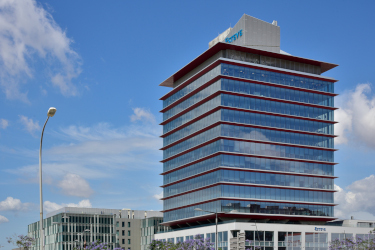21/01/2019
POMPEU FABRA UNIVERSITY AND ESTEVE ARE TO INVESTIGATE NEW TARGETS FOR TREATING NEUROPATHIC PAIN
The RIBOPAIN project aims to identify new therapeutic solutions for pain and to develop more effective drugs
The Neuropharmacology Group-Neurophar at Pompeu Fabra University (UPF) and ESTEVE are beginning the RIBOPAIN project whose main objective is to identify and validate new therapeutic targets for neuropathic pain in neurons and glial cells. The initiative has received funding in the Retos-Colaboración 2017 call by the Ministry of Science, Innovation and Universities.
Its Principal Investigator and Scientific Coordinator will be José Miguel Vela, Director of Drug Discovery & Preclinical Development at ESTEVE, while for the Neuropharmacology Lab, Rafael Maldonado and Miquel Martin will be the principal investigators.
19% of the adult European population suffers from moderate to severe pain. Neuropathic pain, which is the most refractory to treatment, appears as a result of a traumatic or degenerative lesion to the nerve structures with no obvious stimulus. This pain is difficult to palliate with conventional therapies and can become severe and disabling. Thus today, the search for therapeutic solutions is an unmet medical need and a health challenge. There is a need for new, more effective drugs with fewer adverse effects that are capable of modifying the progression and chronicity of pain and its comorbidities.
The aim of RIBOPAIN is the identification and preclinical validation of drug targets with innovative mechanisms of action for the treatment of neuropathic pain. Beyond the traditional approach to the search for therapeutic targets involved in modulating nerve transmission, the researchers are focusing their search on specific cell populations. To do so, they will employ a highly novel genetic approach in rodent models.
Based on the results obtained by UPF, ESTEVE will carry out the synthesis of new compounds with analgesic potential, specific for the new genetic drug targets, as well as their subsequent development. One of the key elements of the project is the differentiation and competitive advantages of the new therapeutic approaches over the existing ones, by comparison with known benchmark analgesics, both in terms of efficacy and safety.
The Retos-Colaboración call supports initiatives involving cooperation between companies and research bodies in order to promote the development of new technologies, the business application of new ideas and techniques, and to contribute to the creation of new products and services.



